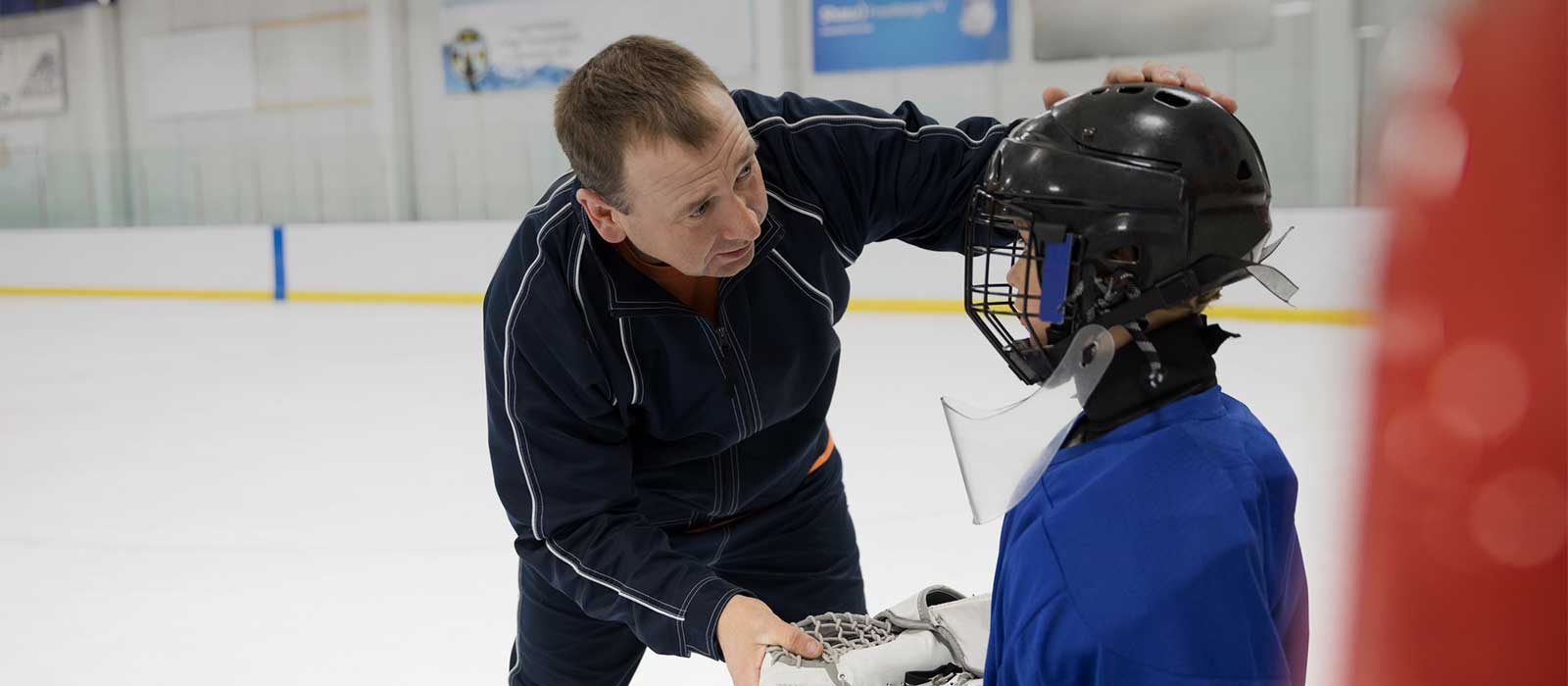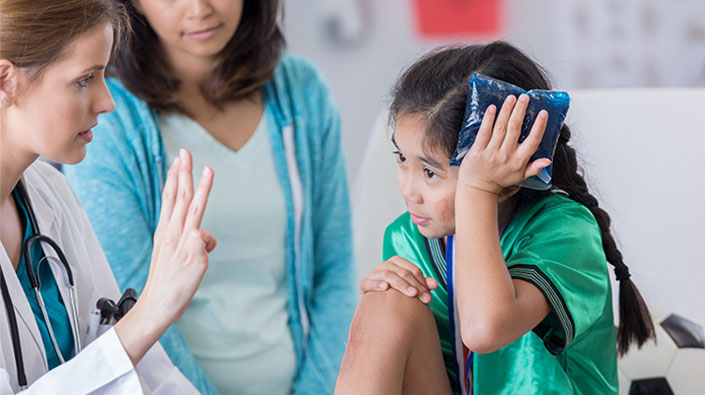Getting the right concussion care at the right time
Are you or someone you know suffering from a concussion?
It's important for everyone to be aware of the signs and symptoms of concussion, so you or your loved one can get the appropriate care they need, when they need it. Learn what signs and symptoms you should look for, know when to seek medical attention and how to care for your concussion following a head injury.

